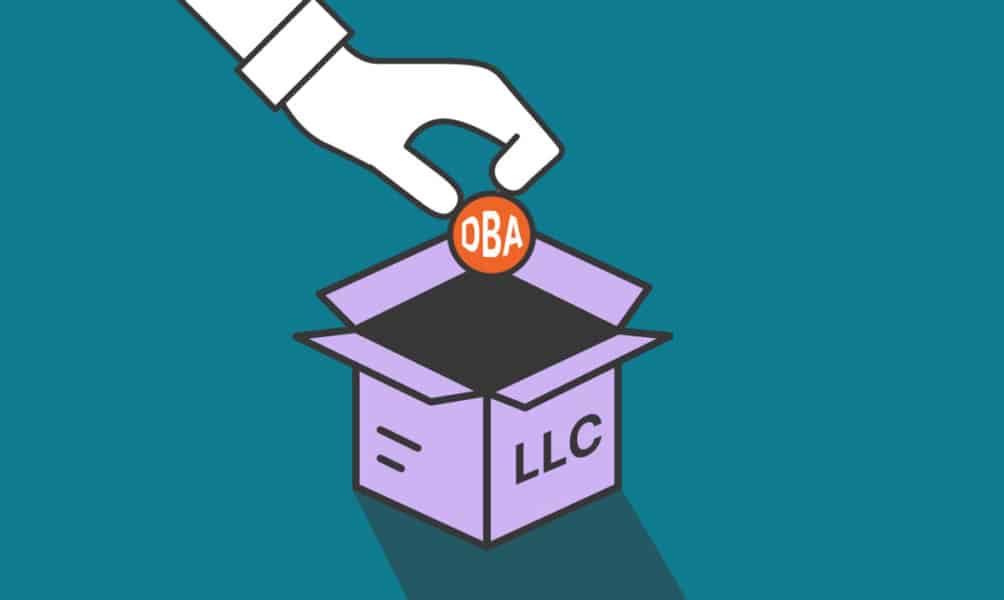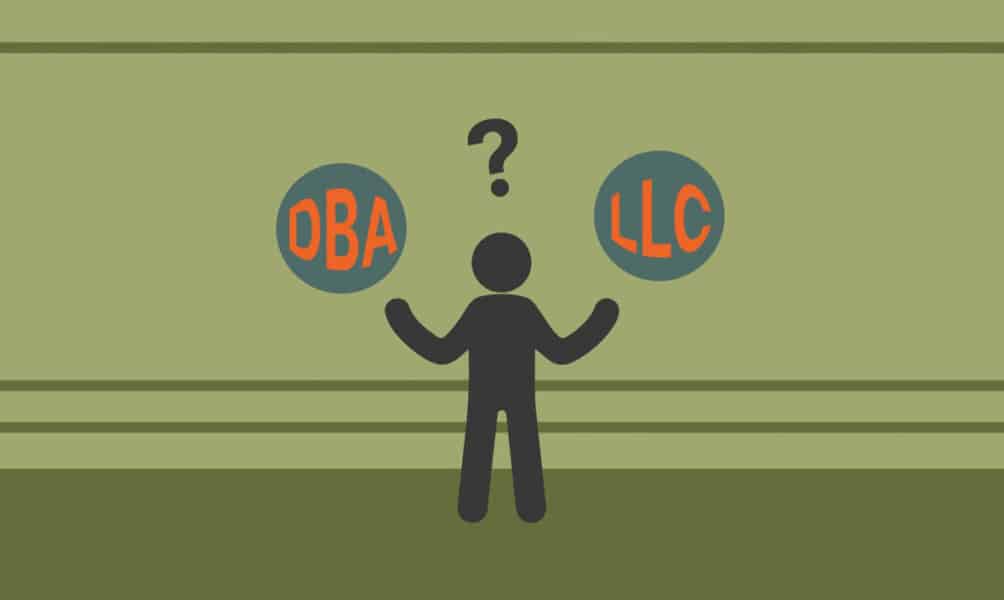If you’re starting an LLC, the business entity formation process is one of the first and most important hurdles. This step can be terribly complex ...
How to Add a DBA to an LLC
Written by: Carolyn Young
Carolyn Young is a business writer who focuses on entrepreneurial concepts and the business formation. She has over 25 years of experience in business roles, and has authored several entrepreneurship textbooks.
Edited by: David Lepeska
David has been writing and learning about business, finance and globalization for a quarter-century, starting with a small New York consulting firm in the 1990s.
Published on December 8, 2021

If you’re starting a business, you may decide to form a limited liability company (LLC) and choose a great name for the business. Still, at some point you may decide to do business under a different name – to enter a new market or pivot into new services.
If so, you’ll need to register a “doing business as”, or DBA name. Simply put, it’s a name a company registers with the state or local government in order to do business under a name that’s not its legal business name.
Maybe you have an LLC called “Smith Enterprises”, for instance, but want to do business under the name “Smith’s T-Shirts”. To do so, you’d file a DBA, which is sometimes called a fictitious name or trade name.
Some states may have different ways of dealing with DBA registration, but the process is quite the same. To set up a DBA under an LLC, below is a step-by-step guide that you should follow.
Steps to Add a DBA to an LLC
Several steps are necessary to add a DBA to your LLC.
1. Check State and Local Requirements
Filing requirements for a DBA vary by state, county, and city, and also by business structure. Check with governments in your area to find out what and where you need to file. Fees generally do not exceed $100 and you can usually file online.
Some states do not require or allow DBA registration at the state level. You may have to file a DBA in each county where you do business.
Keep in mind that if you have an LLC and operate under a name that is not your LLC name and you have not registered as a DBA, you can face significant fines.
2. Choose a Name
Your DBA name will shape the first impression people have of your company, so be sure to choose something that reflects your brand and what your company does. You also want to choose a name that’s unique and easy to remember.
It’s also a good idea to choose a name that allows for expansion by not making it too specific. For example, if you currently sell t-shirts, you may want to expand and sell hoodies, so if you call your business “Tom’s T-shirts”, after your expansion people won’t know that you sell hoodies.
3. Check for Name Availability
You’ll need to make sure that no one else is using your DBA name for an LLC or corporation by doing a search on your state’s relevant website.
It’s also a good idea to check for nationally trademarked names, to ward off any potential problems later if your business expands, and check the availability of related domain names using our Domain Name Search tool. Using “.com” or “.org” sharply increases credibility, so it’s best to focus on these.
4. Register the DBA name
You’ll need to follow the DBA process for your state that you found after completing step one. In most states, you can register your DBA online, usually on the Secretary of State’s website. If your state does not require or allow DBA registration, you may have to physically visit your county clerk’s office to register your DBA.
5. Name Publication
In some states and localities you’re required to publish a notice of your intent to use the name in a local news publication. The notice may have to run for a certain period of time before you can use it.
This allows customers, stakeholders, vendors, or other parties to know who the actual company is, meaning they will know that your LLC is operating under a different name.
6. Trademark the Name
Registering a DBA does not prevent other businesses from using that same name. An LLC name is protected in the state where the LLC is registered, but a DBA name generally is not. By trademarking the name, you’ll be protecting it from being used anywhere in the United States. You can trademark your name with the United State’s Patent and Trademark Office.
7. Renewals
Some states and localities require that you periodically renew your DBA registration. It may be required every year, five years, or ten years. Just be sure to put the renewal date on your calendar so you don’t miss it. There may be a small fee for renewal.
Benefits of a DBA
Many companies choose to use a DBA because it provides benefits to the business.
- You can choose any name and build your brand. Most DBAs are filed by sole proprietorships so they can do business under a name that is not their own, and build a brand with a name that is associated with what the business offers. LLCs choose DBAs usually so that they can brand all of their product lines. “Smith Enterprises LLC” might have multiple DBAs such as “Smith’s T-Shirts” and “Smith’s Shoes”.
- Your bank accounts can have your business name. If you have a registered DBA name as an LLC, customers or others can make payments to your DBA name. This means that you can keep your business finances for each of your DBAs separate for accounting purposes.
- You can scale your business. You can have DBAs for any business that you want to operate under your LLC, so you can grow and diversify with names that identify each part of your business.
In Closing
DBAs have many benefits, and they are simple and inexpensive to file. If you have an LLC, a DBA name can help you add new services or product lines.
Regardless of your reasons for choosing a DBA, just be sure to follow the rules, choose your name wisely, and take steps to protect it. With a bit of luck, you’ll be headed straight for success!
Subscribe to Our Newsletter
and gain insider access to cutting-edge business insights and trends.
Featured Resources

10 Best LLC Formation Services
Published on August 22, 2022
Read Now

Can You Have Multiple Businesses Under One LLC?
Published on November 11, 2021
As an entrepreneur, you probably have a number of business ideas. If you’ve started one business and want to diversify into another, you shouldcon ...
Read Now

Difference Between DBA and LLC
Published on October 7, 2021
If you’re starting a business, you may have heard about limited liability companies (LLCs) and doing business as (DBA) registrations, whichare ...
Read Now
Comments